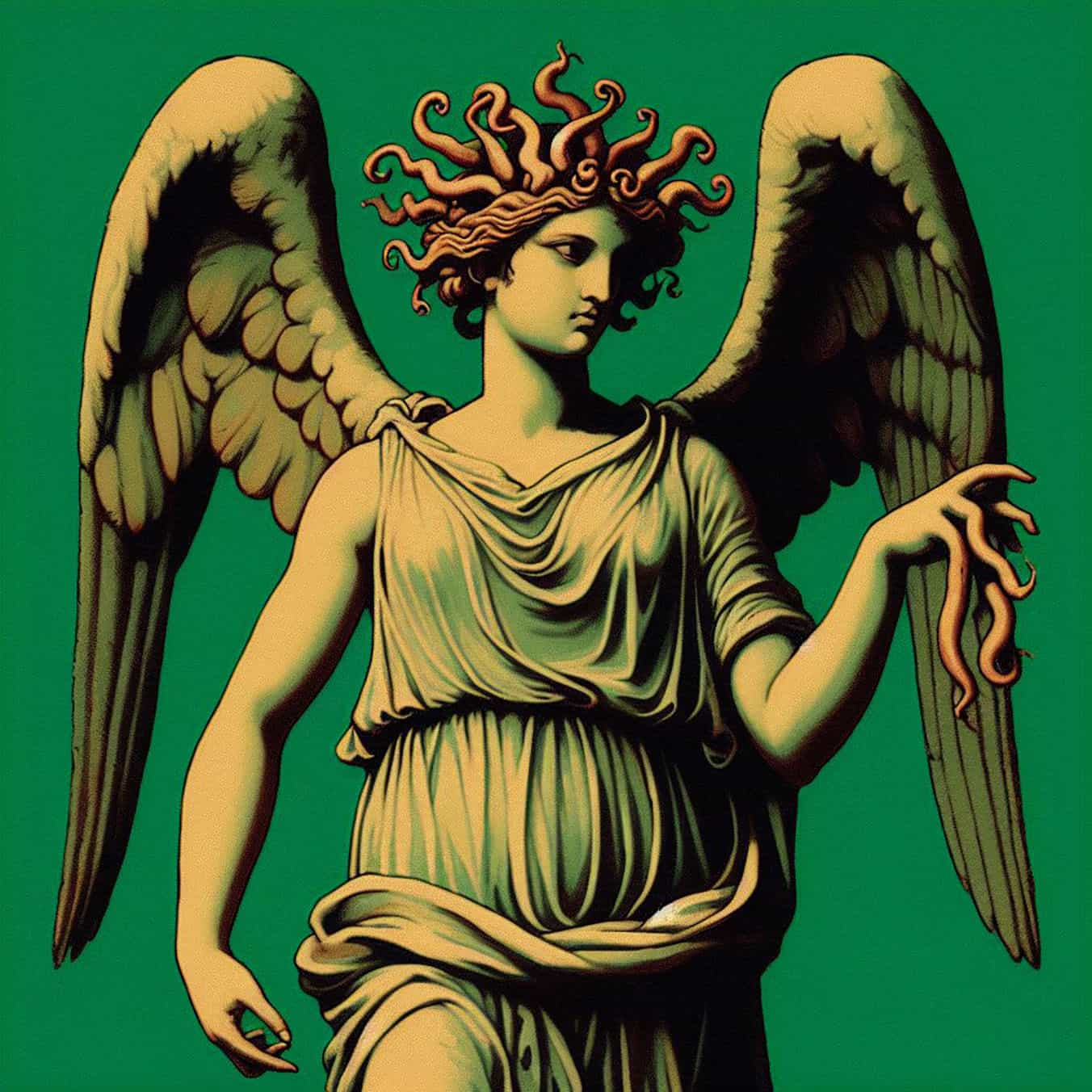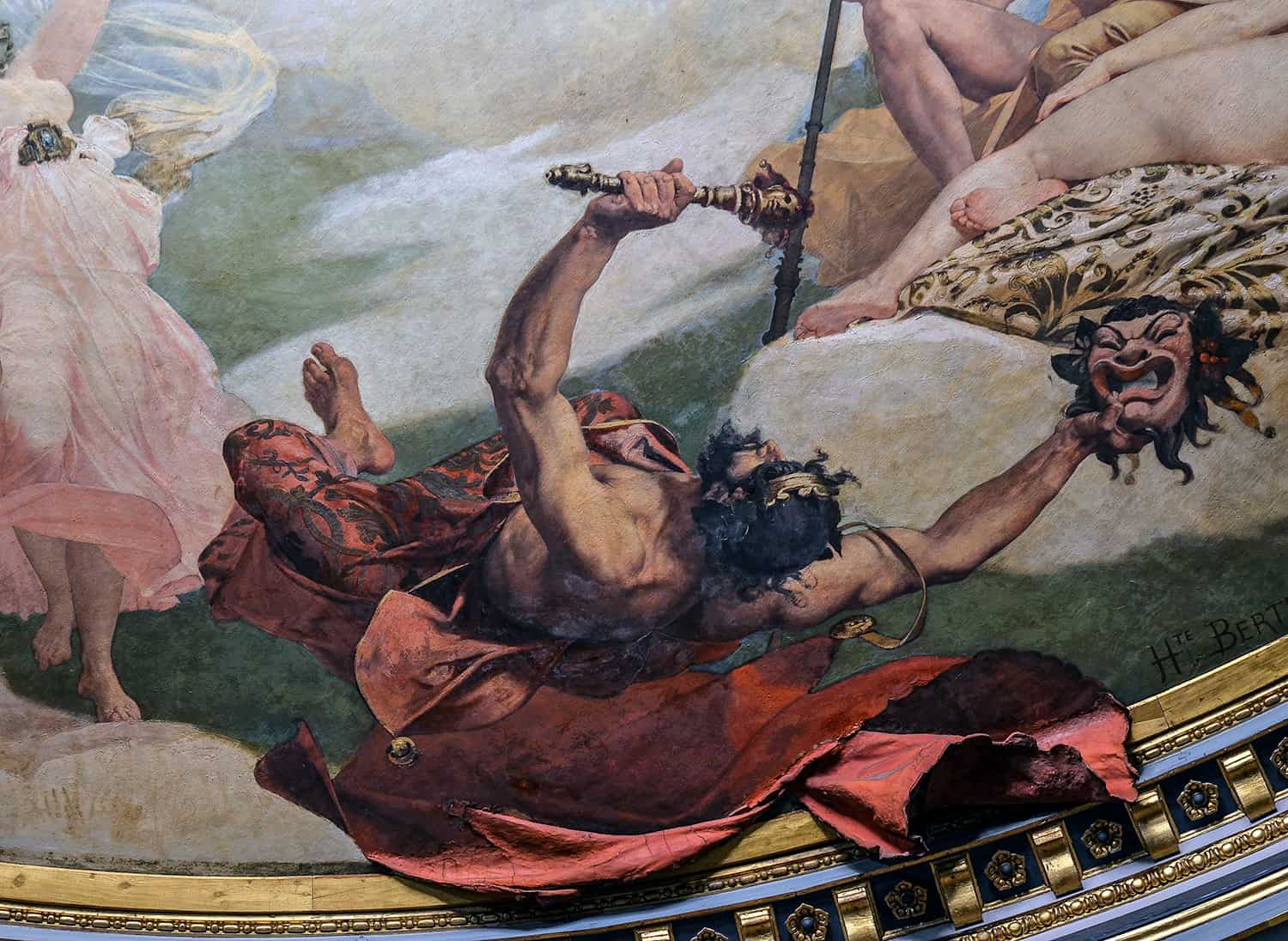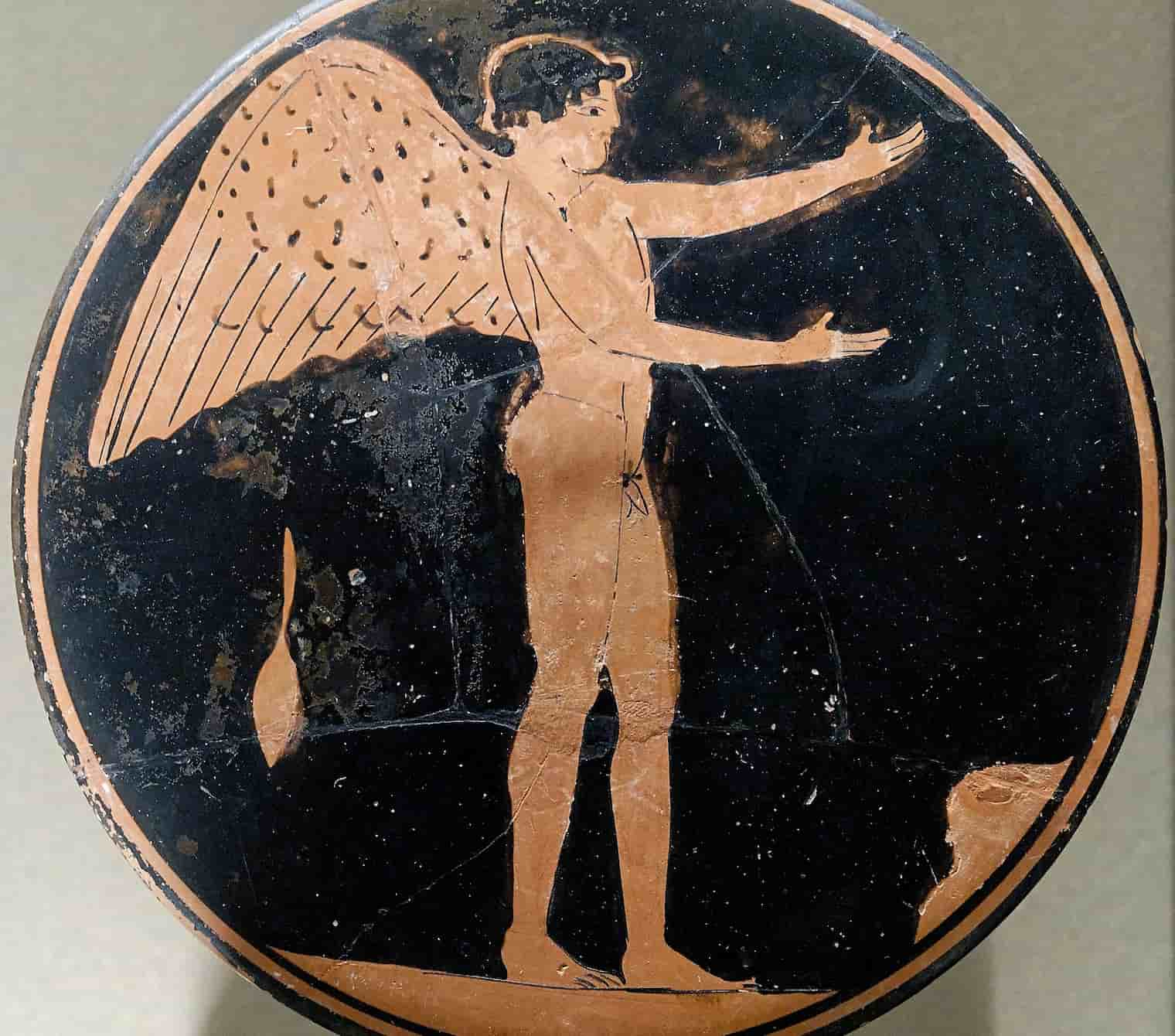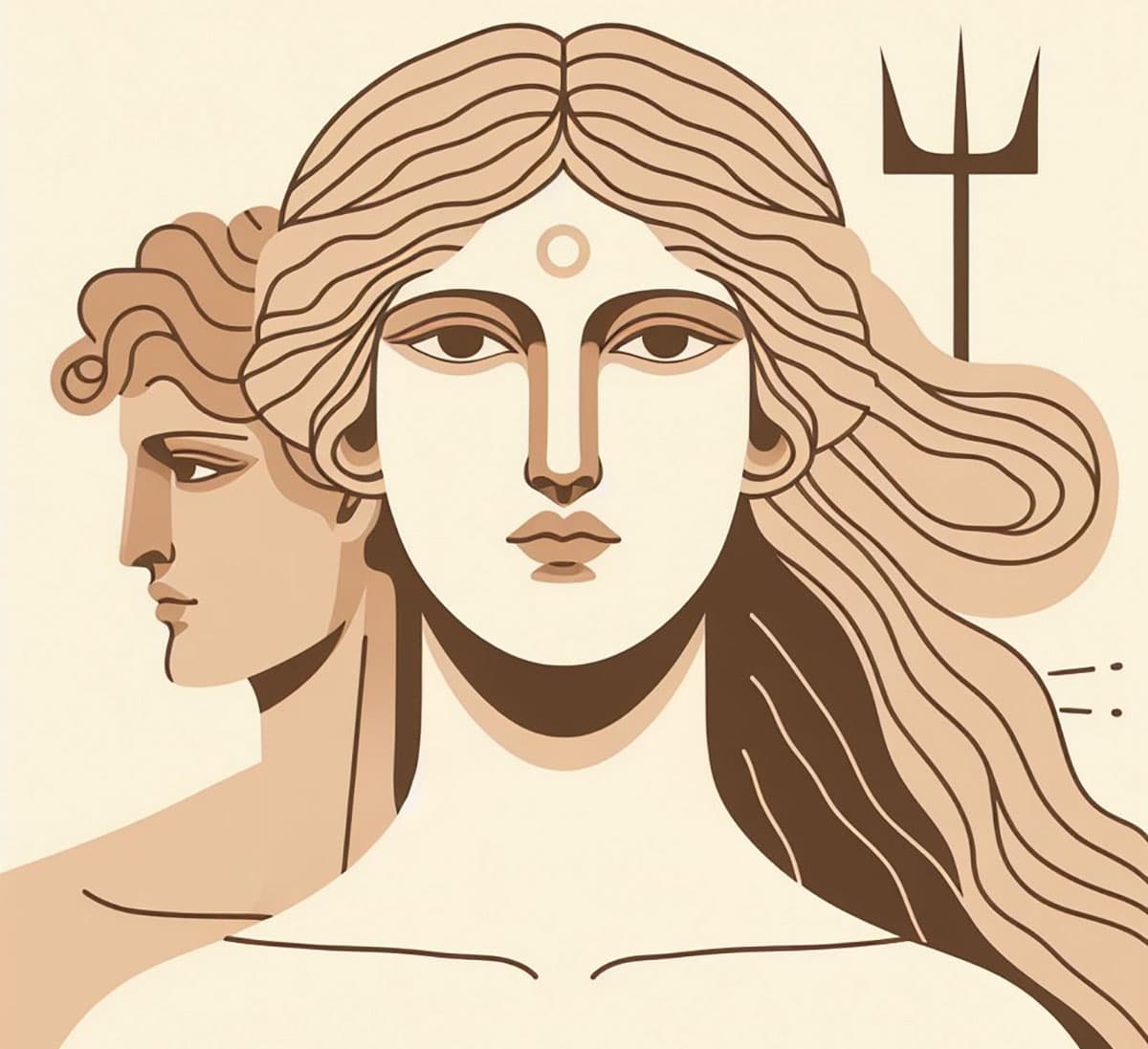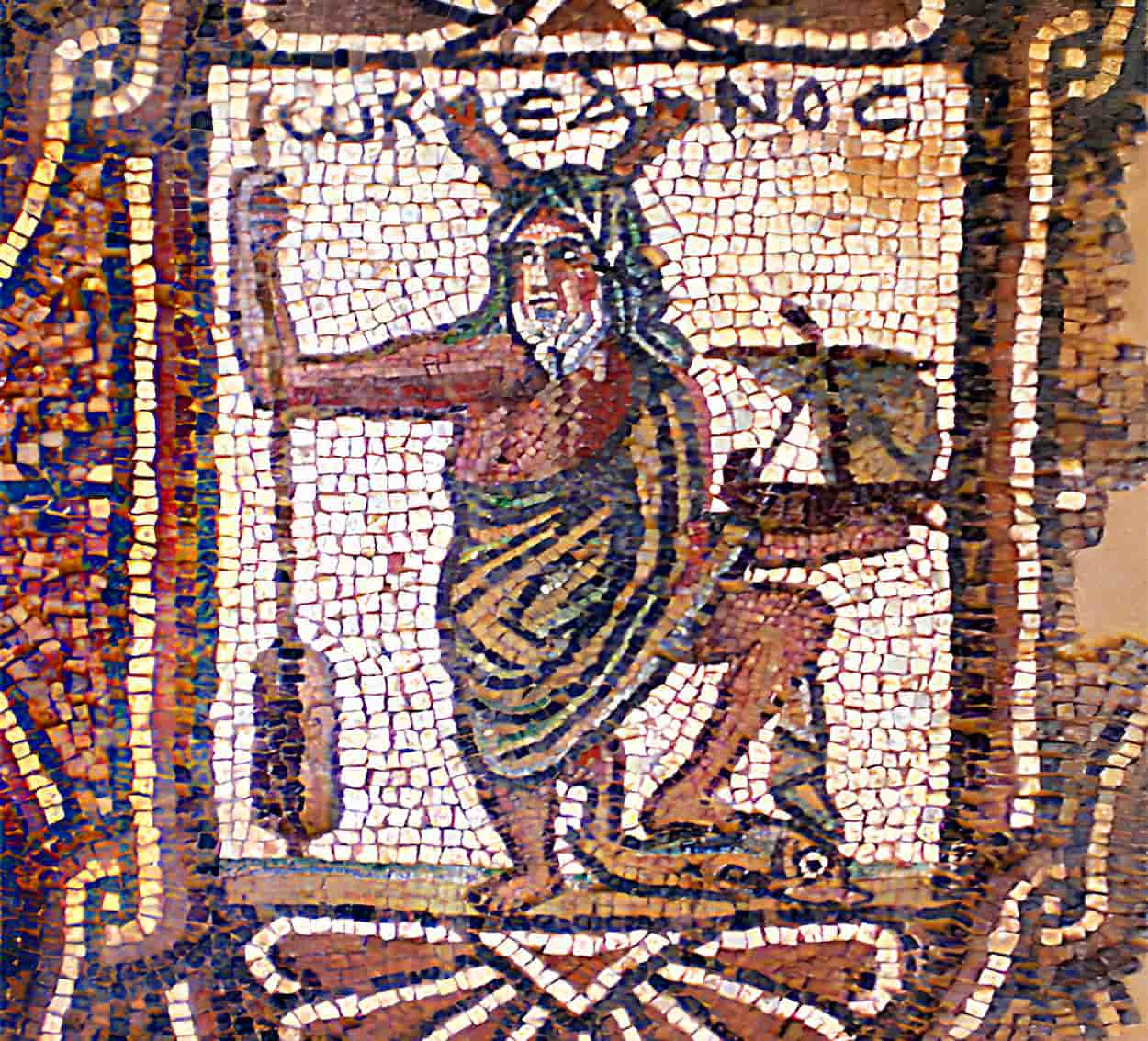Hybris (Ancient Greek: Ὕβρις Hýbris, ‘arrogance’) is in Greek mythology the name of a nymph, with whom Zeus is said to have begotten the demigod Pan; other sources designate Hybris as the mother of Koros. Sometimes, the name Thymbris is also mentioned. Contumelia is mentioned as the Latin equivalent to Hybris. She was called Petulantia in Roman mythology.
Description
Hybris denotes both an attitude that leads to excessive arrogance and the nature of transgressions. Hybris is equated with outrage, violence, cruelty, robbery, arrogance, lack of restraint, rape, injury, arbitrariness, and lust.
Homer already used this term in his works, referring to arbitrary, presumptuous, arrogant, and violent behavior. In Hesiod’s context, Hybris is associated with humanity that has fallen from the golden age. However, he emphasizes that the order of Dike will ultimately triumph over the outrage and arrogance of Hybris.
Theognis of Megara is said to have stated that satiety is the mother of Hybris. It is like a deadly disease that befalls the community. Hybris embodies the opposite of the health of the heart, equanimity, and sophrosyne. A deity that wants to destroy a country sends Hybris as the first misfortune. Theognis himself witnessed the downfall of cities that indulged in abundance and unrestrained extravagance. Among these once prosperous cities were those of the Ionians, Magnesia, the city of Colophon, and Smyrna.
Hybris was considered a transgression against the gods, insufficient respect for superiors, lack of consideration for equals or those in need, disrespect for the rights of others, violation of customs and laws, or the attempt to fight against the natural conditions of existence. All of this was regarded as a moral evil.
The behavior of mythical figures was condemned as Hybris, such as:
- Tityos, driven by his lust, attempting to violate the goddess Leto
- The insatiability of Tantalus
- The restlessness of Sisyphus
- The suitors in the Odyssey, squandering the wealth of the king of Ithaca, mistreating his people, and abusing strangers and beggars
- Ajax, boasting of escaping the raging sea against the will of the gods, although it was Poseidon who saved him
- The conduct of Agamemnon, claiming a gift awarded to Achilles for himself
In Athenian legal language, Hybris was known as the violation of a fellow citizen or one of their relatives through physical violence or abuse. The status of the injured person was irrelevant; it could be a slave, the wife, or a child of another. What mattered was the infringement on one’s own sphere of rights and the deliberate action. Even a display of luxury was considered Hybris. It represents the egoism that places the self at the center.



